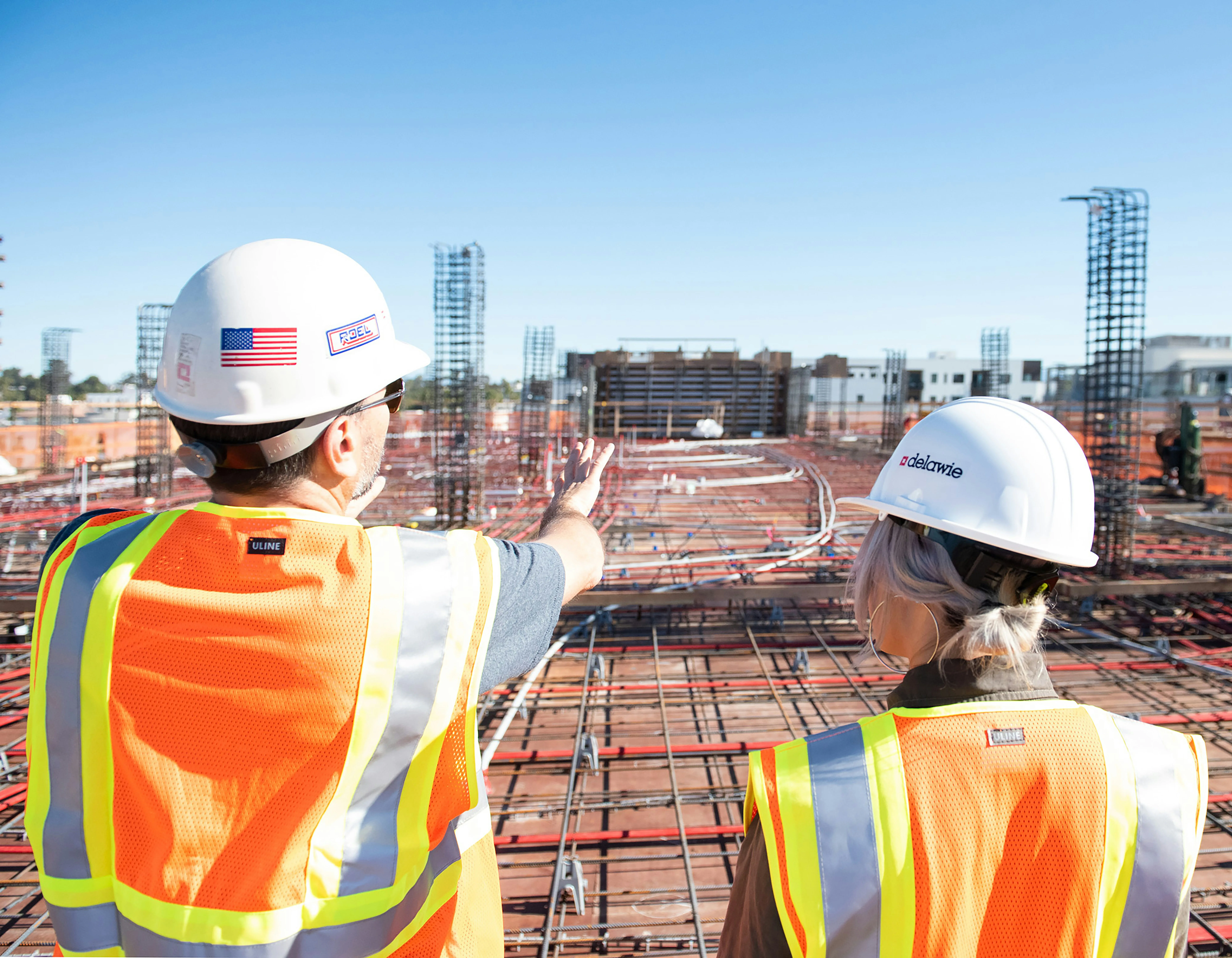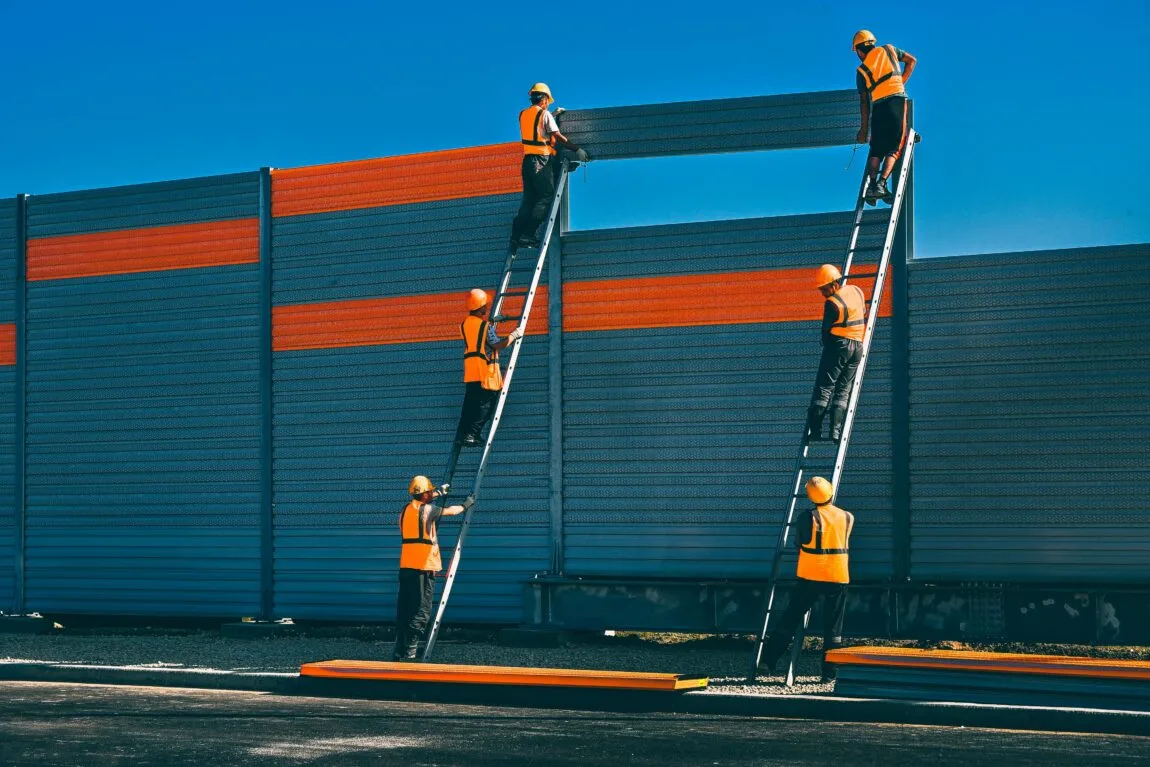Construction projects are known for their complexity, bringing together a mix of contractors, subcontractors, clients, architects, and suppliers. With so many parties involved, there’s a lot of room for misunderstandings or miscommunications. Even a single project change or delay can set off a chain reaction of disagreements, making construction disputes a common and challenging aspect of the industry.
Read on to learn more about construction and building disputes and how to keep these speed bumps from delaying your arrival at your construction destination.
What is a construction dispute?
A construction dispute is simply a disagreement between parties involved in a construction project. These disputes often arise from differences in expectations regarding timelines, costs, or the quality of work. For example, a contractor might expect payment for additional work outside the original contract, while the client may argue that this work should have been included.
Construction disputes impact everyone involved—contractors might face delays and added costs, while clients could experience longer project timelines or budget overruns. These disagreements can quickly become costly and stressful if not managed, which is why understanding their causes and solutions is essential.
What causes construction disputes?
Construction disputes typically have a few common causes:
Misunderstandings in contract terms
Contracts are the backbone of any construction project, setting out what each party is responsible for. However, unclear or poorly defined terms often lead to disputes. For instance, if a contract doesn’t clearly state who is responsible for handling unexpected delays, both the contractor and client may assume the other party should bear the cost. A thorough construction contract review is essential to avoid potential conflicts.
Delays and scheduling conflicts
Construction timelines are often tight, and delays can occur due to factors like bad weather, supply chain issues, or last-minute design changes. When these delays affect schedules, disputes can arise about who is responsible for the extra time or costs. A delay in one part of the project can ripple out, impacting all parties and creating tension if timelines or budgets are stretched.
Quality and compliance issues
Quality standards are huge in construction, but there can be disagreements over whether work meets these standards. For instance, a contractor might complete a task that the client feels doesn’t align with agreed specifications. Compliance with building codes and standards is also a frequent area of dispute, as failing to meet these can lead to additional costs and delays to make corrections.
Cost-related issues
Construction projects are notorious for budget adjustments, especially if unexpected expenses crop up. Disputes over costs can happen if either side believes they are being overcharged or costs start exceeding the budget. Payment timing can also become an issue—if a contractor isn’t paid on time, they may withhold work, adding to project delays and frustration.
Change orders and variations
Mid-project changes, often called change orders, are common in construction. Whether it’s a design tweak or a material upgrade, these changes can affect both timelines and budgets. If there’s no clear lump sum agreement on how these adjustments will be handled, disputes are almost inevitable.
Impact of construction disputes
Construction disputes can weigh heavily on all parties involved, creating challenges that go beyond financial costs. Disputes typically lead to financial strain, often requiring legal fees, arbitration costs, and sometimes compensation. These costs can affect both contractors and clients, especially if disputes drag on or require extensive time to resolve.
Aside from direct expenses, construction disputes commonly lead to project delays. When work halts because of disagreements, every day of lost productivity adds up, especially if labor or material costs increase as a result. For instance, a dispute over the quality of materials used might stop work for weeks while parties negotiate, forcing the contractor to pay for additional labor and replacement materials.
Beyond the financial and scheduling impact, disputes often strain professional relationships. When tensions run high, trust and communication can break down, making future collaborations unlikely. If a contractor and client end up in a heated dispute, the client may hesitate to work with the same contractor on future projects, impacting the contractor’s reputation and potential business.
Common types of construction disputes
Several types of disputes are common in construction, each with its own typical causes and implications.
Contract-related disputes
These are some of the most frequent. They happen when there’s disagreement over contract terms, such as payment schedules or obligations. Unclear clauses or vague language can lead to conflicting interpretations, with each party asserting their understanding of what’s required. Thorough contract drafting and regular reviews can help prevent these misunderstandings and unnecessary construction legal risks.
Payment disputes
Another common type of construction contract disputes are payment disputes. These often arise when payments are delayed or disputed. Contractors may stop work if they aren’t paid on time, which leads to project delays and potential penalties. This type of dispute is particularly troublesome when there’s no clear payment schedule or when one party claims the other hasn’t met payment requirements.
Quality disputes
These building disputes involve disagreements over the standards and specifications of work completed. For example, if a contractor delivers work the client finds unsatisfactory, the client may refuse payment or demand rework. This type of dispute is common when specifications aren’t fully clear or if one party feels that the work doesn’t meet agreed-upon standards.
Delay claims
These issues often arise when projects fall behind schedule, with both sides debating who should cover the costs. If a contractor believes delays were unavoidable or due to client actions, they might file a delay claim to recoup extra expenses. However, if the delay was preventable, the client may hold the contractor responsible, creating further complications.
Scope of work disputes
These occur when there are disagreements over what the contractor is responsible for. They are common when the project scope isn’t clearly defined, with contractors and clients having differing expectations about the services to be provided.
Building disputes over materials or workmanship
The last kind of construction disputes frequently arise when one party feels that materials or craftsmanship fall short of agreed standards. Quality and durability are usually the main points of contention, especially if subpar materials lead to future repairs or replacements.
How to resolve a construction dispute
Resolving construction disputes often involves a step-by-step approach, where open communication and third-party assistance can play huge roles.
Negotiation and Open Communication
The first and often most effective step in resolving construction disputes is direct negotiation. Open discussions allow both parties to address concerns early, which can lead to a quick and amicable resolution. When contractors and clients talk through issues as soon as they arise, they’re far less likely to end up with drawn-out conflicts that complicate the project and increase costs.
Mediation
If negotiation doesn’t settle the dispute, mediation is a logical next step. This process involves a neutral third party, the mediator, who helps both sides work toward a solution they can agree on. Mediation is particularly useful when both parties want to maintain a good working relationship, as it encourages collaboration without escalating the dispute to formal legal proceedings.
Arbitration
When mediation doesn’t result in an agreement, arbitration offers a more formal but still relatively streamlined option. In arbitration, an arbitrator listens to both sides and makes a binding decision. It’s faster and less costly than litigation, making it a popular choice for construction disputes that need a clear, enforceable outcome.
Litigation
As a last resort, litigation is used when other methods fail or when the stakes are too high to resolve informally. Going to court can lead to a binding decision, but litigation is often time-consuming and expensive. The costs of legal fees and extended project delays make litigation a less attractive option unless absolutely necessary.
Technology and AI-Assisted Tools
Technology has recently provided new tools for managing and even preventing construction disputes. AI construction contract review tools, for instance, can catch ambiguities and inconsistencies in contracts before they lead to misunderstandings. By addressing potential issues early, these tools can reduce the likelihood of disputes altogether.
Preventing disputes in construction projects
While construction disputes are common, there are effective ways to prevent them. A few proactive steps can go a long way in keeping projects on track and ensuring that all parties stay on the same page.
Clear Contract Terms
A well-drafted contract with precise language is crucial for setting expectations and avoiding misunderstandings. Regular construction contract reviews help identify any ambiguities before they escalate.
Open Communication
Frequent check-ins and open dialogue among parties ensure alignment and allow for quick resolution of minor issues before they grow.
Realistic Budgets and Timelines
Accurate budgeting and scheduling based on realistic assumptions help prevent disputes related to cost overruns or delays.
Advanced Tools
Digital tools, including AI-driven contract review, help track budgets, timelines, and progress, reducing miscommunication and catching potential issues early.
Experienced Professionals
Hiring skilled project managers and legal advisors can make a big difference, as their expertise helps prevent issues and ensures smooth project execution.
Moving forward with confidence: Resolving and preventing construction disputes

Construction disputes can be challenging, but with the right strategies, they’re manageable. Understanding what construction disputes are and why they occur is the first step to preventing them. Clear contracts, open communication, realistic budgeting, and effective use of management tools all play a part in reducing the likelihood of conflicts.
When disputes do arise, proactive communication, contract reviews, and flexible negotiation help manage these issues effectively. These steps not only help resolve conflicts but also foster strong working relationships and ensure projects reach completion smoothly. While disputes may be common in construction, smart management strategies can lead to more positive outcomes for everyone involved, helping teams complete projects on time and on budget.
Focusing on these best practices allows construction teams to handle challenges more confidently and avoid potential conflicts that might otherwise stall progress. In the end, taking the time to prevent and manage disputes makes a big difference in bringing construction projects to a successful close.







By entering your email, you agree to our Terms & Conditions and Privacy Policy.